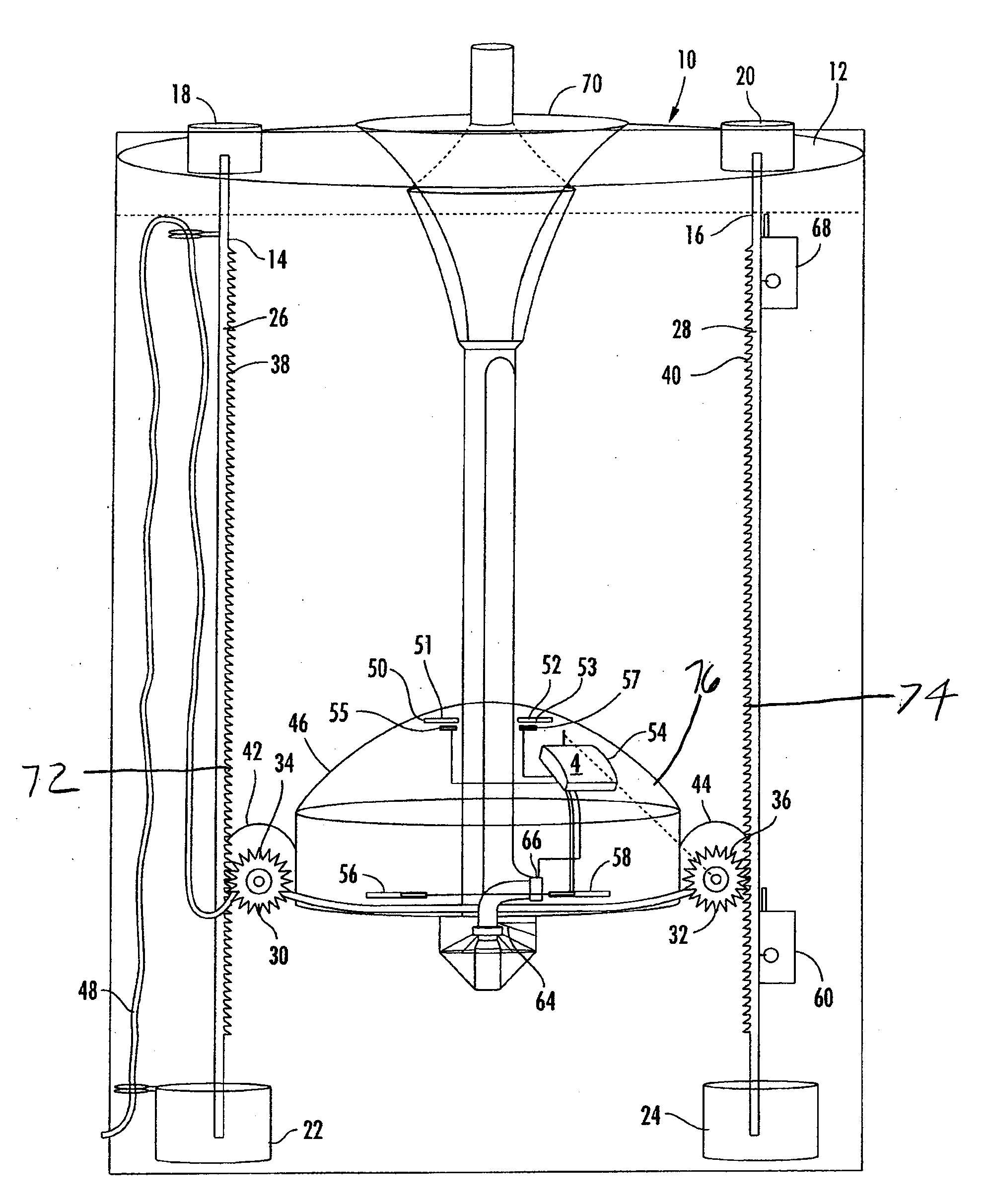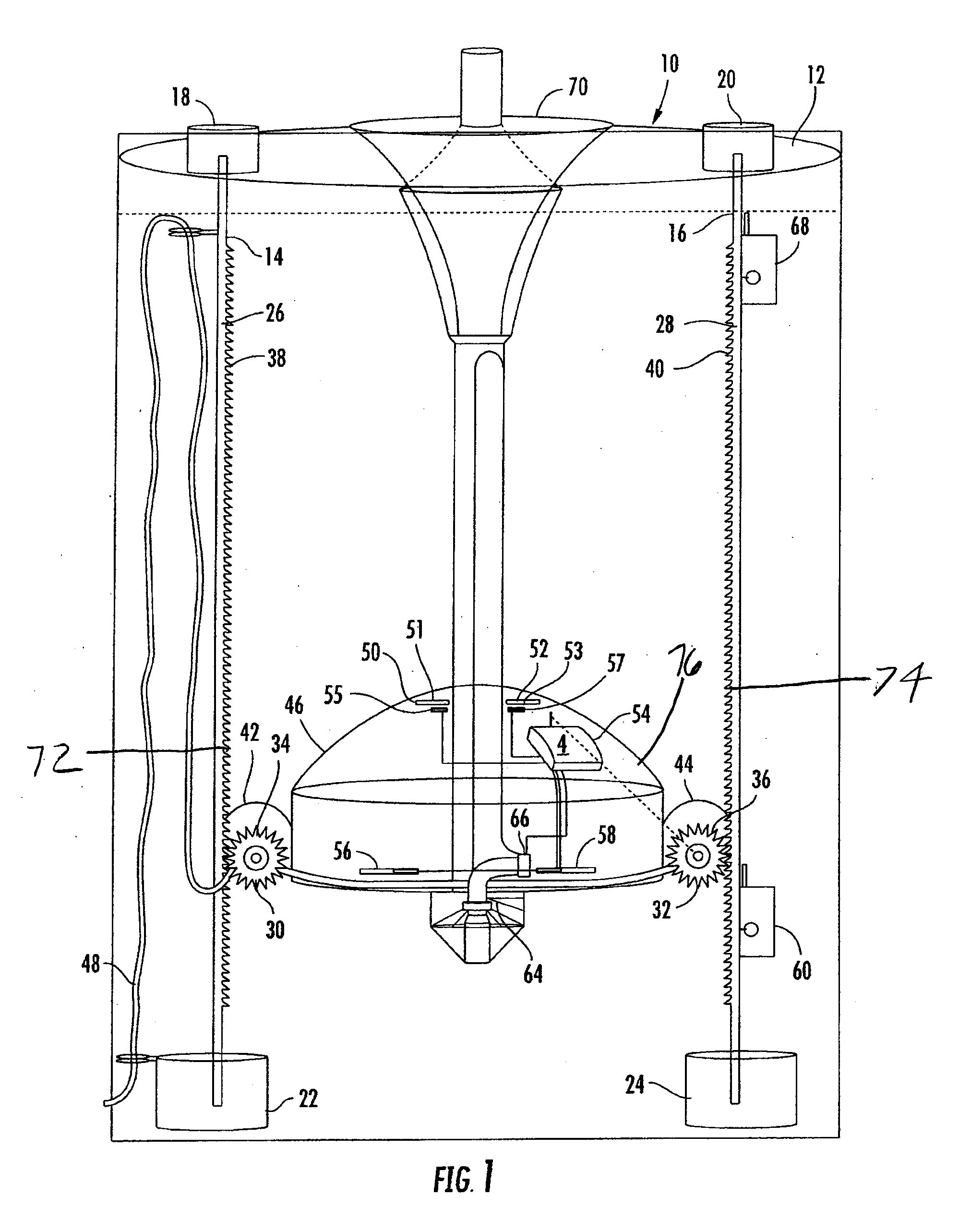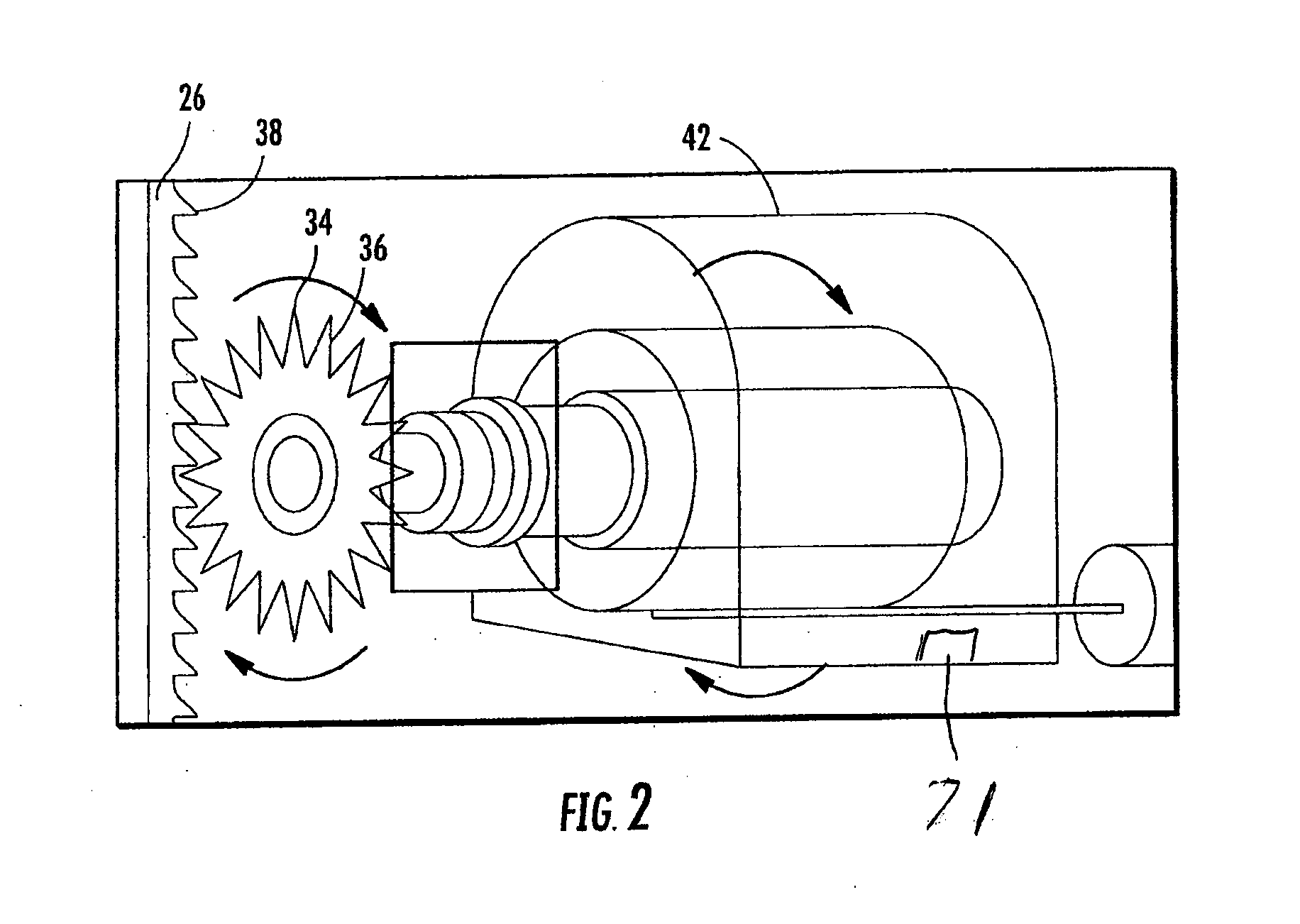Buoyancy Energy Cell
a technology of buoyancy energy and energy cell, which is applied in the direction of electric generator control, machines/engines, mechanical equipment, etc., can solve the problems of generating little or no electricity, and not disclosing the electrical generator directly mounted on the float, etc., to achieve high-efficiency energy or electricity generation and energy generation
- Summary
- Abstract
- Description
- Claims
- Application Information
AI Technical Summary
Benefits of technology
Problems solved by technology
Method used
Image
Examples
Embodiment Construction
[0025]While the present invention is susceptible of embodiment in various forms, there is shown in the drawings and will hereinafter be described a presently preferred, albeit not limiting, embodiment with the understanding that the present disclosure is to be considered an exemplification of the present invention and is not intended to limit the invention to the specific embodiments illustrated.
[0026]A first preferred embodiment of the present invention is illustrated in FIGS. 1-2. In this embodiment an energy producing cell 10 is located within a body of water 12. The body of water may be a tank, a lake, a pond, an ocean, a river, etc. It can be a natural body of water or a man-made body of water. Two anchoring chains or vertical guides 14 and 16 are vertically positioned within the body of water 12. While two anchor chains are illustrated, any number of anchor chains or vertical guides 14, 16 can be employed. Floats, buoys or upper supports 18 and 20 are secured to one end of the...
PUM
 Login to View More
Login to View More Abstract
Description
Claims
Application Information
 Login to View More
Login to View More - R&D
- Intellectual Property
- Life Sciences
- Materials
- Tech Scout
- Unparalleled Data Quality
- Higher Quality Content
- 60% Fewer Hallucinations
Browse by: Latest US Patents, China's latest patents, Technical Efficacy Thesaurus, Application Domain, Technology Topic, Popular Technical Reports.
© 2025 PatSnap. All rights reserved.Legal|Privacy policy|Modern Slavery Act Transparency Statement|Sitemap|About US| Contact US: help@patsnap.com



